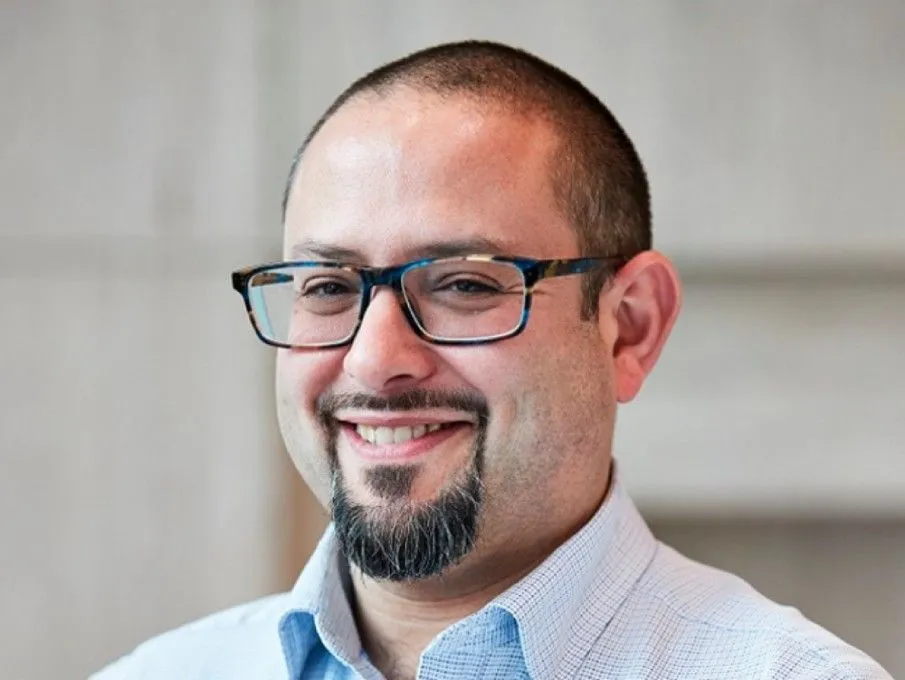What’s next for NCSC’s Ian Levy? ‘A Proper Job,’ he tells The Record
Luminaries of the British security and intelligence community — from those inside the agencies through to civil servants and politicians — gathered at the National Cyber Security Centre’s (NCSC) headquarters in London on Tuesday evening to bid farewell to Dr. Ian Levy, the agency’s outgoing technical director.
Levy has spent more than two decades in crown service, joining the U.K.’s intelligence community from the University of Warwick where he was a post-doctoral researcher in computer science. Over the course of the intervening years, Levy held numerous roles at GCHQ — the U.K.’s top cyber agency — before helping found NCSC itself in 2016.
NCSC’s focus since its founding — which happened in the wake of Edward Snowden’s surveillance disclosures and an acceleration in hostile foreign cyber activity — has been to engage with the public and industry to deal with the cyberthreats facing the United Kingdom. Dr. Levy during his tenure continuously argued for the value of approaching cybersecurity as a science — particularly in his lengthy farewell blog post published last week.
Among his achievements, Levy was a major mover in shoring up British government websites and communications, as well as articulating government procedure around the handling of vulnerabilities in technology.
From the risks posed by Huawei to Kaspersky, he has taken the lead to explain every issue of public concern about cybersecurity the country has faced.
Ciaran Martin, NCSC’s founding chief executive, tweeted that he struggled to think of any other civil servant who had as much of a positive impact in their specialist field — on a national and global level — as Dr. Ian Levy has had in cybersecurity.
Struggling to think of any other civil servant in my 23 years there that had as much positive impact - at national & global level - in their specialist field as Dr Ian Levy has had in cyber security. Well done my friend, & great blog too https://t.co/7aWVU3h5qq
— Ciaran Martin (@ciaranmartinoxf) October 27, 2022
In a thread he paid tribute to “one of the most remarkable and singularly effective public servants I had the privilege to work with (and be the nominal boss of)” and listed Dr. Levy’s praises: “A proper technical expert, a brilliant communicator, teacher and influencer, an original thinker, a globally important force for good, an occasional royal pain in the arse, and a hugely impactful change agent.”
Martin also delivered a speech in Levy’s honor in a surprise return to NCSC that was described as “both hilarious and moving” by multiple attendees. As a leaving gift, Levy was given an authentic 10-rotor assembly for a Fialka cipher machine, used across the Eastern Bloc during the Cold War.

Following the nibbles at headquarters in Nova South in Victoria, the farewell party decamped to a nearby pub and then shuffled on through the drizzle to another again at closing time. Current and former colleagues who declined to be named echoed Martin’s affections and praise for Levy, and – universally smiling – described him as a “disruptor.”
Publicly, Richard Benyon, a former MP who now sits in the House of Lords, described Levy as “a great man” and added: “When I was a member of the Intelligence and Security Committee he explained cyber security to a layman with utter clarity. Thank you Ian Levy for your service.”
Despite the farewell, Levy doesn’t leave immediately — there is a lengthy handover process with the numerous people who will be sharing his portfolio of work — and some more goodbyes with former colleagues in the United States. Rob Joyce, the director of cybersecurity at the National Security Agency, wrote that Levy was "an excellent partner that will be missed!" on Twitter.
In the short term for Ian Levy there may be a new Twitter account, and he joked about possibly dyeing his trademark goatee bright pink for Movember. For a few months he will be on “enforced gardening leave,” a term for when an outgoing employee is expected to steer clear of the workplace during their notice period, before starting a new role.
Asked what was next, Dr. Levy told The Record “a Proper Job” although it turned out this was a brand of Cornish pale ale. In terms of his future employment he remained professionally and profoundly secretive.
Alexander Martin
is the UK Editor for Recorded Future News. He was previously a technology reporter for Sky News and is also a fellow at the European Cyber Conflict Research Initiative.



